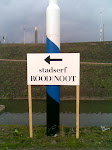HamletMachine was written in 1977 and had its first production in France in 1979. Müller lived and wrote in the former East Germany. The play reflects his critique of the intellectual in conflict with history. He views Hamlet as a man between the ages. The play (a montage only four pages in length) is Müllers most complicated and difficult to decode. The spectator may recognize many references to 20th century history, philosophy, and social/economic conditions. Müller says, It is the description of a petrified hope, an effort to articulate a despair so that it can be left behind. The play takes us to a deadend, as human beings we cannot continue in this way. Müller shatters Shakespeares play. His text is like shards of a mirror, each shard reflecting and distorting both Shakespeares Hamlet and our own contemporary world.
Shakespeares Hamlet tells the story of a young Danish prince. The King (Hamlets father) is killed by his own brother, Claudius, who then marries Gertrude, Hamlets mother. Hamlet is confronted by his fathers ghost who asks him to take revenge on his death. The play involves Hamlets dilemma as he tries to decide how to act. Ophelia (in love with Hamlet), her father, Polonius, and Hamlets best friend, Horatio, are all key characters in Hamlets journey toward understanding and action.
Paradox confronts us at each moment in Shakespeares Hamlet and it is precisely this paradox that Müller dramatizes so starkly. For this reason, the Lab has used Müllers text as an entry into the Hamlet myth. With Müllers play as a basic structure, NWPL [new world performance labs] interpolates scenes from Shakespeares drama and elements of the actors own autobiographies to create a montage in which paradox can be explored as a mode of consciousness. In his book Wandering God: A Study in Nomadic Spirituality (State University of New York Press, Albany, 2000), cultural historian and social critic Morris Berman defines paradox as the experience of space, a diffuse or peripheral awareness. He says it is not characterized by a search for meaning, an insistence or hope that the world be this way or that. It simply accepts the world as it presents itselfOne does not deal with alienation (the split between Self and World) as much as live with it, accept the discomfort as just part of what is. How to embody this state of paradox can be viewed as Hamlets dilemma: To be or not to be: that is the question. It is precisely this question of embodiment that NWPL confronts in its rendering of HamletMachine.
One way in which NWPL chooses to explore paradox is through the use of various languages. Müller wrote his text in German and English. In NWPLs production, the actors use their native languages (Spanish and Italian) as well as English (particularly in the Shakespearean scenes). This Babel of languages creates a nomadic stage culture that constantly puts into question contemporary paradigms of power.
One more key to viewing this play: Dont be concerned with narrative. View the performance as a poem in action, as a piece of music embodied.

.jpg)

